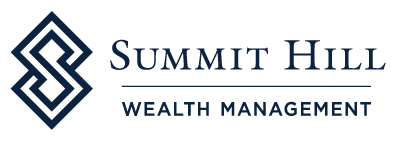Investing Excess Cash in a Volatile Market
Many business owners and affluent families have excess cash in bank accounts as a result of strong economic growth since the 2020 downturn. 1 According to the Wall Street Journal revenues and profit margins have surpassed the late 2019 levels for a majority of US companies. 2 The liquidity crunch that many feared never materialized while government assistance flowed freely - leaving many companies and families with a sizable cash cushion.
While having excess cash can be a welcome situation it poses challenges on how to proceed. How should one invest in an environment of rising inflation, rising interest rates, and the war in Ukraine? Is the economic expansion over and markets are near a pullback? Is it better to reinvest in the business, distribute profits and diversify, or pay down debt? What to do with available cash is an important decision with long-term consequences. Being too aggressive could expose a company or a family to significant risk. Being too conservative could miss options to invest in a business, real estate, or other opportunities to grow.
Some may believe that investing available cash is easy – as if popular investments will perform the same way in the future. This is a dangerous misconception. Many investments that performed well for a time become fraught with risks as they become popular. As investments gain popularity they often become more expensive and the potential returns diminish. Some recent examples highlight this dynamic. When real estate investing became popular in 2004 and 2005 many people thought it would be easy to make money in real estate and proceeded to lose significant sums when the bubble burst in 2008. 3 Technology stocks were the darling of Wall Street in late 2020 and 2021 and peaked in November 2021 - only to drop dramatically when inflation spiked at the end of 2021 and early 2022. 4 Cryptocurrencies like Bitcoin have experienced multiple booms and busts. Bitcoin peaked at $69,000 per coin in May 2021 and crashed -42% nine months later. 5 A Wall Street mentor of mine likes to say “investors like to play checkers while the market is playing chess.” Investing in what has been popular lately is playing checkers and can be a recipe for large losses.
The truth is that investing is not easy. Identifying investments that fit an investor’s goals and risk tolerance amid a volatile market is a skill that takes training, discipline, and experience. Anyone who claims it’s easy to invest has likely never experienced serious market losses or is selling something. Investing excess cash with a casual attitude towards risk can lead to losses and missed opportunities.
To address this challenge we developed a tool, the Cash Matrix™, to help our clients answer this question. We use it to help clients think through how best to invest available cash to address financial risks and take advantage of opportunities. The Cash Matrix™ first asks whether there are sufficient cash reserves to endure unforeseen threats such as a market downturn or the loss of a job or income. It then examines whether there are debts with high interest rates, a need to invest in a business, or repair a property or asset. If not it asks users about their investment goals and matches them with relevant options. For example if consistent income is important then real estate or bonds may be a good option. If aggressive growth is a priority then stocks or investing in private companies may be a good fit. These options can then be evaluated in light of the investor’s assets, goals, risk tolerance, timeline, and desired returns.
This approach provides an objective way for affluent families to evaluate their risks and opportunities in a methodical, logical way.
- It helps spouses and business partners to resolve differences of opinion and agree how to proceed even though they may have different attitudes and experience with investing
- It helps address and reduce risks before considering more aggressive options
- It provides answer to how to use available cash in good times and bad
- It works for business owners, executives, near-retirees, and retirees
How to invest excess cash in a volatile market is not an easy question to answer but tools like the Cash Matrix™ can provide guidance. For those interested in learning more or experiencing the Cash Matrix™ contact us at info@summithillwealth.com.
All written content is for information purposes only. Opinions expressed herein are solely those of Summit Hill Wealth Management, LLC and our editorial staff. Material presented is believed to be from reliable sources; however, we make no representations as to its accuracy or completeness. All information and ideas should be discussed in detail with your individual adviser prior to implementation. Advisory services are offered by Summit Hill Wealth Management, LLC a Registered Investment Advisor in the State of Colorado.
Sources
“Bolstered Balance Sheets: Assessing Household Finances Since 2019”, Barnes, Edelberg, Estep, Macklin, Brookings Institute, 3/22/22
“US Companies are Thriving Despite the Pandemic – Or Because of It” Theo Francis, 1/1/2022, Wall Street Journal
“The Crash of 2008: Causes and Lessons To Be Learned” James Gwartney, National Council for the Social Studies, 2009
“Tech Investors Are Suffering the Second Stocks Rout of the COVID Pandemic – And Wall Street Thinks It Could Get Far Worse” Bernard Warner, Fortune, 2/21/2022
“Is a Bitcoin Crash Coming” The Times, 3/31/22
